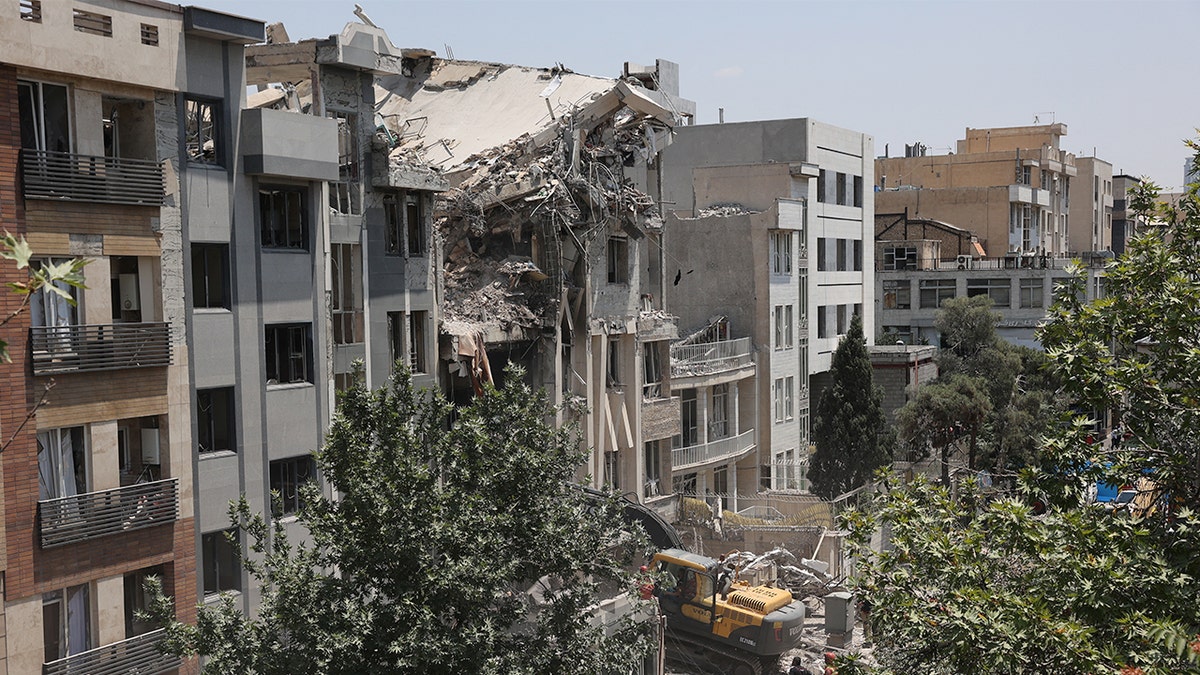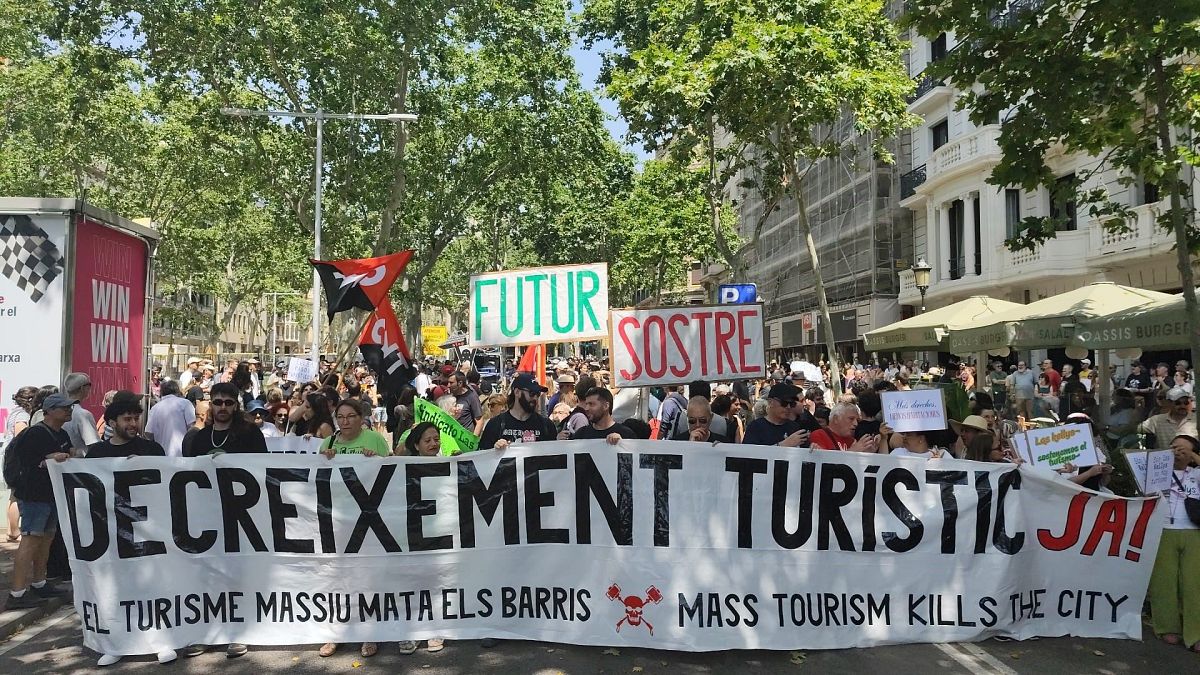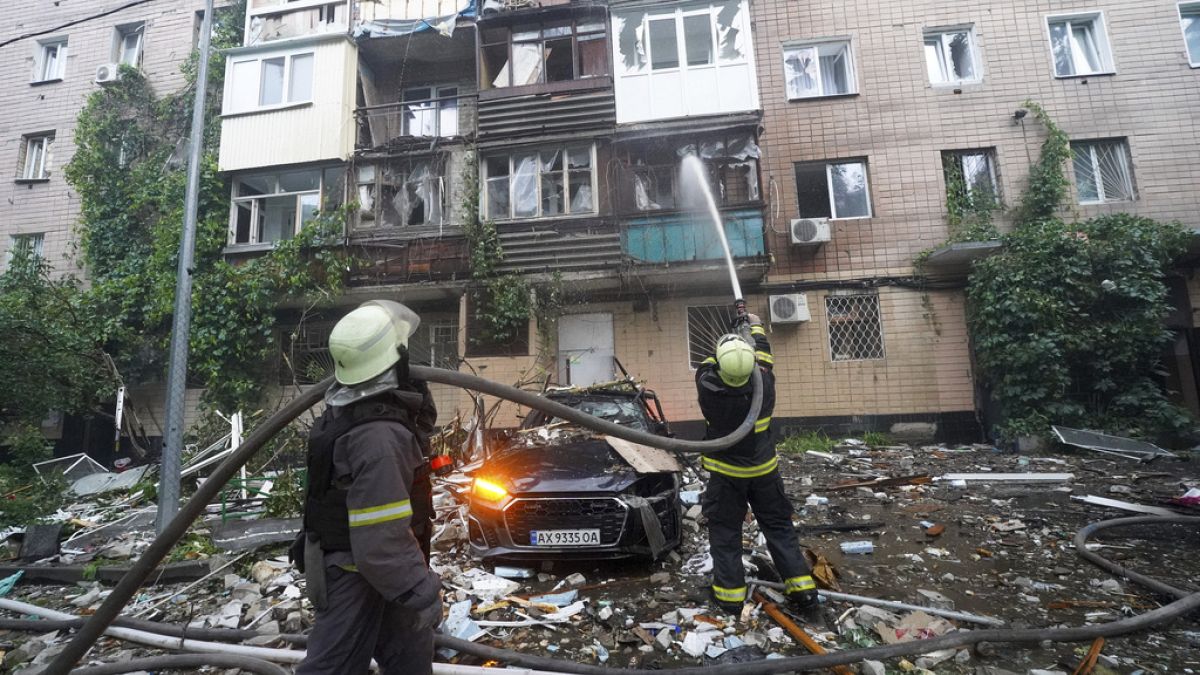World
Fighting in Sudan: A timeline of key events

Six weeks after fighting erupted between Sudan’s army and the RSF, multiple ceasefire deals have faltered and hundreds have been killed.
Efforts to end Sudan’s war, in its seventh week, suffered a major setback when the Sudanese army suspended talks with its rival paramilitary Rapid Support Forces (RSF).
Negotiations began in the Saudi Arabian port city of Jeddah in early May with the objective of protecting civilians and implementing ceasefire deals that have repeatedly been violated.
More than 1,800 people have been killed since the battles began in mid-April, according to the Armed Conflict Location and Event Data Project, and more than 1.6 million people have been displaced within the country or across its borders, the UN has said, with many fleeing to Egypt, Chad and South Sudan.
Here are the main developments in the war raging in the northeast African country.
April 15: Fighting erupts
On April 15, heavy gunfire and explosions rock the capital Khartoum, sparking panic in the city of more than five million people on the Nile.
The army, led by Sudan’s de facto ruler Abdel Fattah al-Burhan, and the Rapid Support Forces (RSF), led by Burhan’s deputy-turned-rival Mohamed Hamdan Dagalo, known as “Hemedti”, each accuses the other of attacking first.
The clashes come after years of instability and repeated coups.
Fighting also erupts in the western region of Darfur, which is still reeling from a brutal war that started in 2003 under longtime ruler Omar al-Bashir.
April 22: Rush to evacuate
Countries rush to evacuate their nationals from Khartoum, by air or along desert roads, some lined with burned-out military vehicles.
Thousands flee in the frantic exodus while many embassies are ransacked.
Millions of Sudanese remain trapped in their homes, many quickly running short of water, food, medicines and basic supplies, and are fearful of the urban combat and roaming looters.
April 25: Failed truce, jailbreak
The US and Saudi Arabia negotiate a 72-hour truce but it is quickly violated. A series of further truce deals that follow meet the same fate.
Ahmed Harun, a leading figure in al-Bashir’s regime, which was deposed in 2019, announces he has escaped from prison.
The army says that al-Bashir, who is wanted by the International Criminal Court on genocide charges over the war in Darfur, was transferred to a hospital before the fighting began.
April 26:
Aid agencies raise alarm as humanitarian efforts are interrupted across the country. Organisations struggle to figure out how they can continue operating while ensuring the safety of their workers amid the fighting.
April 27:
The Sudanese army and the RSF agree to extend their ceasefire for “an additional 72 hours” amid continuing violence in Khartoum and the western Darfur region.
But fighting continues as warplanes patrol over the capital’s northern suburbs and fighters on the ground exchange artillery and heavy machine-gun fire, according to witnesses.
May 5: African ‘fortune seekers’
UN Special Representative Volker Perthes says armed “fortune seekers” from Mali, Chad and Niger are joining the fight, lured by money and gold.
His claim echoes the army’s allegation that the RSF is using mercenaries from elsewhere in Africa.
May 6: Jeddah talks start
US and Saudi-backed talks between army and RSF envoys begin in Jeddah.
May 11:
Both sides agree to allow urgently needed humanitarian aid to reach war-struck areas, committing “to ensuring the protection of civilians” but, again, the fighting never stops.
May 22:
A new one-week ceasefire comes into force on May 22 but is also repeatedly breached.
May 27:
Al-Burhan demands the dismissal of the UN envoy to Sudan, Volker Perthes, accusing him of having sparked the conflict.
May 31: Army walks out
On May 31, the army says it has suspended its participation in the ceasefire talks, accusing the RSF of failing to respect its truce commitments.

World
Fox News Segment Goes Viral After Bizarre Rebekah Koffler Interview Is Abruptly Cut Off: ‘Finally, the United States Is Back!’

In a bizarre turn of events, Fox News abruptly cut off its Saturday night interview with Rebekah Koffler after the wobbly former defense intelligence agency officer launched off on an incoherent tangent about Donald Trump’s controversial military parade meant to celebrate the Army’s 250th anniversary.
“I’m so excited, Emily and Lucas Tomlinson,” Koffler said to Fox News anchors Emily Compagno and Lawrence Jones, slurring her words and misidentifying the “Fox and Friends” host. “Everybody, like this is incredible! Finally, the United States is back! I want to really thank all of our army, navy and air force officers who’ve been sacrificing their lives, literally. Their families have been contributing to the mission.”
Fox Network did not immediately respond to Variety‘s request for comment.
She continued, “With our new Commander in Chief, Donald J. Trump, they are prioritizing America first. And I want to thank these officers for all of their sacrifices and all of the hardships that their families have endured. Lawrence Jones, you’re doing….you’re rocking man!”
Koffler tried to continue, but Jones and Compagno were quick to cut her off about a minute and a half into her appearance, thanking her for her time and going to a commercial break.
Trump’s Army anniversary parade coincided with what has become known as the “No Kings” protests, a nationwide movement spawned from backlash against the president’s aggressive deportation raids.
Several Hollywood A-listers joined the “No Kings” protests against the Trump administration, including Jimmy Kimmel, Kerry Washington, Ayo Edebiri, Glenn Close, Mark Ruffalo and Mary Elizabeth Ellis.
World
Israel's strikes damaged Iranian deterrence in the region, former IDF official says

NEWYou can now listen to Fox News articles!
Israel’s preemptive attack on Iran not only marked a major milestone for the 77-year-old nation, but also a turning point for the Middle East. According to a former IDF spokesperson, as Jerusalem grapples with the ongoing war in Gaza, it’s clear Israel has its eyes set on one major goal: ensuring that Tehran never obtains a nuclear weapon.
Lt. Col. (Ret.) Jonathan Conricus, former IDF Spokesperson, senior fellow at the Foundation for Defense of Democracies (FDD) and co-founder of “BottomLine Media,” told Fox News Digital that Israel is working to eradicate what it sees as an existential threat.
In the early hours of Friday morning local time, Israel carried out a series of airstrikes and covert operations to take out Iranian infrastructure and senior leadership. The IDF on Saturday said it had killed more than 20 Iranian commanders, including the head of the country’s Intelligence Directorate and the commander of Iran’s surface-to-surface missile array.
Iranian flags fly as fire and smoke from an Israeli attack on Sharan Oil depot rise, following Israeli strikes on Iran, in Tehran, Iran, on June 15, 2025. (Majid Asgaripour/WANA (West Asia News Agency) via Reuters)
TIME FOR ISRAEL TO TAKE OUT ‘HEAD OF THE SNAKE,’ TARGET MEMBERS OF IRANIAN REGIME, SAYS FORMER IDF INTEL CHIEF
“To be frank, a nuclear program like that means it’s personnel before it is infrastructure. And if we’re serious about it — to have a meaningful lasting impact on the Iranian nuclear weapons program means that Israel has to work quite long and quite hard and it means a lot of knowledge has to be deleted,” Conricus said.
While Iran’s infrastructure and leadership have taken major hits in Israel’s Operation Rising Lion, Tehran’s influence over the Middle East, including its proxies, has been damaged. Conricus told Fox News Digital that the crumbling of what he calls “Iran’s ring of fire around Israel” began with Hamas’ Oct. 7 massacres.
“It’s not totally done yet, but Hamas and Hezbollah are very weak compared to what they were on October the 7th, and Iran itself is, I think, the weakest that I’ve ever seen it, militarily and politically,” Conricus said.
“So, I think that with the benefit of hindsight, Iranian strategic planners, when they were thinking about this multi-front assault on Israel from Gaza, from Lebanon, from Syria, maybe from other places, and they had these pipe dreams that that would somehow eradicate the State of Israel — with the benefits of hindsight — may not have been such a brilliant idea.”

Spokesman of Israeli army Jonathan Conricus speaks on the operation as Israeli army’s military operation, which has been launched to expose and thwart cross-border tunnels allegedly dug by Hezbollah along the border with Lebanon, continues at the northern Israeli town of Metula in Israel on December 5, 2018. (Mostafa Alkharouf/Anadolu Agency/Getty Images)
INSIDE ISRAEL’S SECRET WAR IN IRAN: MOSSAD COMMANDOS, HIDDEN DRONES AND THE STRIKE THAT STUNNED TEHRAN
Iran’s nuclear program has been the subject of policy debates and a source of regional tension for decades, as many Arab nations quietly oppose the regime. Following Israel’s attacks, several countries, including France and the U.K., reaffirmed their opposition to Tehran gaining a nuclear weapon, even while criticizing Jerusalem for its operation.
“Many countries behind the scenes are very positive and cheering on Israel and even sending messages of support and wishing us the best of luck against the Iranians because it would suit their strategic goals, and they’re happy that someone is standing up to the regional bully, which is Iran,” Conricus said.
The former IDF spokesperson told Fox News Digital that Israel dealt a significant blow to Iranian deterrence in the Middle East, which could change how other countries in the region respond to Tehran’s demands.

A building stands damaged in the aftermath of Israeli strikes, in Tehran, Iran, June 14, 2025. (Majid Asgaripour/WANA (West Asia News Agency) via Reuters)
“Before you know, 48 hours ago, I think if the Iranians threatened people then the level of fear and deterrence would have been reasonably high. Today, after the very humiliating defeats that the Iranians have suffered at the hands of Mossad and Israeli Air Force and special forces, I’m quite confident that Iranian deterrence has taken quite a significant hit and that the countries who perhaps before were very much deterred by the Iranians probably are less so today,” Conricus told Fox News Digital.
However, he noted that those countries still have an opportunity to assert themselves.
Conricus also believes that while “it’s too early in the game” to predict what this could mean for Iran domestically, there is a chance that the Iranian regime could be at stake. The country was already dealing with internal unrest prior to Israel’s attack as the population revolted against the regime’s quashing of basic rights and freedoms.
World
Hundreds gather in Barcelona to protest southern Europe's overtourism

Thousands of people took to the streets of several cities across southern Europe on Sunday in the latest protest against overtourism.
In the Spanish city of Barcelona, where the main demonstrations took place, some fired water pistols at shop windows and set off smoke.
Organised by the alliance “Southern Europe against Overtourism”, demonstrators joined forces with groups in Portugal and Italy.
They argue that uncontrolled tourism is driving up housing prices and forcing people out of their neighbourhoods.
The Guardia Urbana says only 600 people attended the demonstration in Barcelona.
The Centro de Investigaciones Sociológicas (CIS) states that housing is the number one national concern for citizens, according to its latest barometer released in May.
Some 120 groups, such as the ‘Sindicat de Llogateres’, or Zeroport, against the recent approval of the extension of the Prat airport, joined in the march.
Spokespeople for the latter platform say that, if this project is approved by the government, the airport will receive another 15 million passengers, of which 10 million will be tourists.
Organisers have once again denounced the political inaction in the face of this phenomenon. Of the 13 proposals that were delivered to the Barcelona City Council after the demonstration in July last year, they claim that “none of the demands have been met, quite the contrary”.
Record number of tourists again?
Spain, which has a population of around 48 million, hosted a record 94 million international visitors in 2024. It remains the second most visited country in the world, behind only France.
In addition to the low supply of public housing construction, well below the European average, the growing number of unregistered tourist flats has also contributed to the rise in house prices to record levels.
Similar to the protests that took place a few months ago in the Canary Islands, the Balearic Islands have joined the protests against mass tourism.
This sector contributes more than 40% to the economy of the Mediterranean islands, according to estimates from several economic analyses, but also contributes to the degradation of their natural spaces and the increase in prices for islanders.
The ongoing protests have served as a rallying cry for governments and cities to reassess their tourism models.
-

 West1 week ago
West1 week agoBattle over Space Command HQ location heats up as lawmakers press new Air Force secretary
-

 Technology1 week ago
Technology1 week agoiFixit says the Switch 2 is even harder to repair than the original
-

 Movie Reviews1 week ago
Movie Reviews1 week agoPredator: Killer of Killers (2025) Movie Review | FlickDirect
-

 Politics1 week ago
Politics1 week agoA History of Trump and Elon Musk's Relationship in their Own Words
-

 Finance1 week ago
Finance1 week agoChinese lenders among top backers of “forest-risk” firms
-

 Technology1 week ago
Technology1 week agoThere are only two commissioners left at the FCC
-

 News1 week ago
News1 week agoA former police chief who escaped from an Arkansas prison is captured
-

 World1 week ago
World1 week agoUkraine: Kharkiv hit by massive Russian aerial attack

















